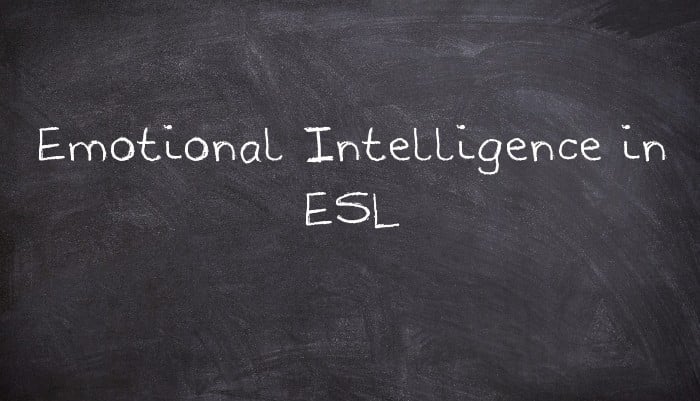Reading Jim Wingate's How to use E.I. in teaching reading comp and phrasal verbs (archive.org link), I found that I disagreed with almost everything in it. The piece is about applying emotional intelligence to teaching English, and starts with the sweeping generalisation that 'Emotion is life, response.' While emotion is a vital part of life, I think this basic premise is overstating the case and forgetting many other factors. He then applies this claim to another bold claim that 'most English lessons have no life, no response'. While there are many tedious teachers in the world, there are also plenty of good ones whose lessons are full of life and response.
Mr Wingate's next step starts to trouble me:
Let’s look at a typical lesson. We read a text. We answer comprehension questions. What strange behaviour!
Look at life instead. We read a text (eg. a letter from a friend). The friend does not
add comprehension questions to the letter. In the pub a friend tells a story. The friend does not follow the story with comprehension questions.
Firstly, the concept that in real life, texts are not followed by comprehension questions is another generalisation. If a friend tells a joke, the natural reaction is to laugh, or not, and not to ask questions. However, often, after reading or listening to something, the next stage may well involve questions.
Many exercises in language teaching are different from real life; no one has ever given me a gapped text, but there are many kinds of questions used in typical lessons, and many of them reflect natural patterns. Couples often read the newspapers together and discuss the stories they have read through questions, a story in a pub may be followed by requests for more information, opinions, clarification, and many other things.
Mr Wingate's cartoon cut-out view of text + comprehension questions is another of his many generalisations about teaching. Furthermore, why does behaviour in the classroom have to reflect that of the pub, where there is plenty of other strange behaviour. The mere fact that something doesn't reflect the behaviour of another and completely different situation does not invalidate it.
When I study a text in a foreign language, I welcome comprehension questions as a way of letting an expert test my, er, comprehension. In courts of law, they regularly look at texts and then follow up with comprehension questions, but Mr Wingate seems unaware of this. Courts of law are as much a part of life as pubs are, so his crude and simplistic analysis breaks down straightaway.
He then moves on to classroom technique and suggest that we should ' add a moment of humanity':
After reading a text, let your learners, in pairs, talk about it freely for one minute in mother tongue.
Here, the basic errors pile up; many classes are not monolingual, and mother tongue will only work in a monolingual class; there's little point in asking an Iranian student to discuss something with a Peruvian student in their mother tongue. Secondly, he talks about adding humanity, but look at the degree of control he takes for granted; he suggests pairs, not natural clusters formed by the students themselves, and says 'let' students do something, hence taking the very power role of the teacher for granted, while pretending to add 'humanity' and real life. In real life, do we always speak in pairs because our teacher lets us? In a pub or bar, there are no groupings of pairs on these grounds.
His philosophy of teaching is not thought through at all; his claims are generalisations and he falls straight back to the very things he wants to criticise when it suits him.
Worse follows:
My mental picture of what happens is this:
We read a text.
It remains suspended in the air, an “out there”, “other”, “objective phenomenon”, “them”.
If we ask comprehension questions it is like reaching up to the text to pluck out answers.
Add this classroom technique.
We read a text.
The learners talk about it freely for one minute in mother tongue.
The text descends from the air and engages with the brain.
It becomes experience, “in here”, “self”, “subjective experience”, “us”.
If we then ask comprehension questions, it is reaching inside for the answers supported by a lifetime’s experience.
We have tapped into the emotional intelligence.
Now, he is suggesting that only by discussing a text in our mother tongue can it become a subjective experience, after which we have tapped into emotional intelligence. This means that only monolingual ESL classes can ever work with texts, because only they can discuss something in their mother tongue, after the arbitrary, not scientific, time limit imposed by the teacher authority. This is just plain wrong. Mr Wingate has not tapped into anything.
A few years ago, I attended a lecture on Emotional Intelligence and EQ at the University of London and was horrified by the flimsy nature of what was being presented as scientific fact. Nothing in Mr Wingate's lesson plan convinces me that his view of emotional intelligence is anything other than trivial. The only thing that pleased me in the article was to see that the link to his website did not work.
